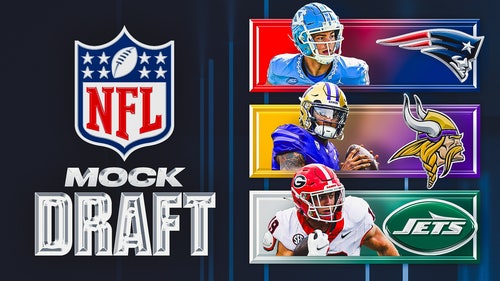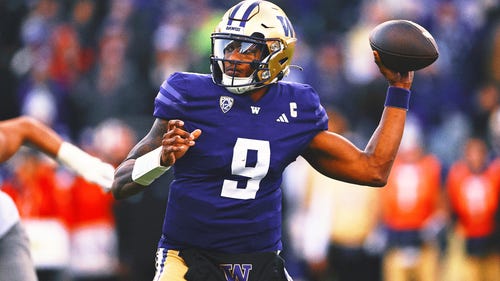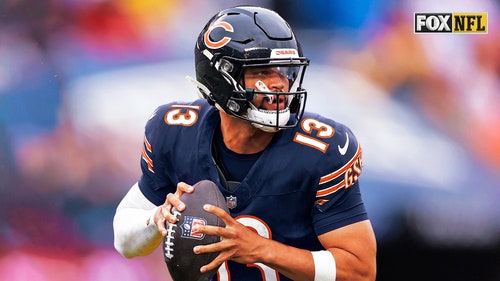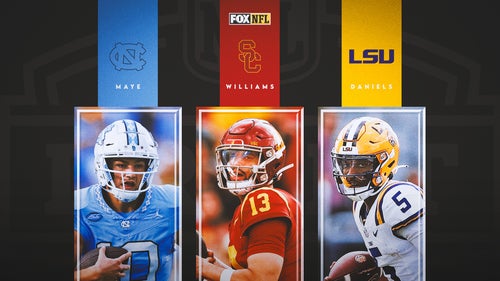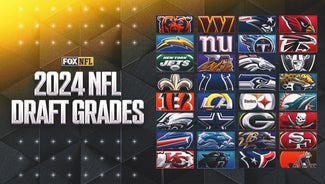
Resting players a balancing act in NFL
Every Wednesday until the Super Bowl, Brian Billick will write a weekly column looking in-depth at different aspects of the modern NFL and will discuss experiences and insights he gained while coaching and broadcasting.
I watched with interest the recent controversy in the NBA inspired by Gregg Popovich's decision to send four of his best players home early — rather than playing them against the Miami Heat — at the end of a long road trip for the San Antonio Spurs. Since then, a few people have asked me what would happen if a football coach ever made the same decision.
In many cases, of course, they already have. That's one reason the former Green Bay Packers quarterback back-up Matt Flynn earned his big contract from Seattle this past offseason, after throwing six touchdowns passes in the regular-season finale against the Lions, when Packers coach Mike McCarthy chose to rest starting quarterback Aaron Rodgers for the playoffs.
But that's not comparing apples and apples. Popovich sent his stars home for an early regular-season game, well before playoff races could begin to heat up. The NBA regular season is an 82-game marathon establishing little beyond who enjoys pole position for the playoffs. In the NFL, by contrast, the home-field advantage is absolute (home teams enjoy the advantage throughout the entirety of that single-elimination game, rather than the fourth home game out of a seven-game series in the NBA) and the regular season is relatively short, with just those 16 precious games.
Also, the series of graduated playoff advantages enjoyed by teams at the top of the standings are sufficiently important to provide incentives for every team to try to realize every advantage possible. Once you qualify for the playoffs, you want the guaranteed home game that comes with a division title. Once you clinch the division title, you want one of the two byes into the divisional round. Once you clinch a bye, you want the No. 1 seed, meaning all you have to do is win two home games to go to the Super Bowl. So regular-season games are both rarer and more important, meaning that NFL teams would never electively sit a bunch of healthy starters early in the season, before they’d done everything they could to wrap up the best seed possible for the playoffs.
Around the second half of December, though, the questions become a little different, and significantly more complex. For instance, in the NFC, the Atlanta Falcons could conceivably wrap up the No. 1 seed (and home-field advantage throughout the NFC playoffs) as early as this coming weekend. Suppose that happens. If you were Mike Smith, the coach of the Falcons, how would you respond to that?
There are two distinct, and diametrically opposed, schools of thought here. The Scarce Resources mindset recognizes that football players are in danger whenever they play the game, and says that you don’t ever want to risk injury to them when you don’t have to, such as in a meaningless preseason game, or a late regular-season game that has been rendered meaningless by your team having already clinched the best possible playoff position it can get. The purists from this school would say you should try to sit nearly everybody for most if not all of the last two games, play your backups, call up some practice-squad players, and treat Weeks 16 and 17 as glorified exhibitions, letting your starters heal and start pointing toward the playoffs.
The opposing viewpoint, which we might call the Hot Hand school, says that the Scarce Resources policy is both unrealistic and irresponsible. In the case cited above, it would mean that, once you count the bye week for top seeds at the beginning of the playoffs, a team would go nearly a month without playing a meaningful game, and then have to try to instantly operate on all cylinders come the big playoff games in January. Coaches and players alike know how difficult it is to turn it on after weeks of dormancy.
The Hot Hand school also argues it’s simply bad karma, at the very least, to ignore the fact that football teams get better by playing football games. On offense, you want to hone the timing of your routes and refine your running game; on defense, you want to be sure you’ve mastered your ability to rotate coverages and make sure that your entire defensive unit is operating cohesively. In short, if you’re having a good season and winning games, you (and your players) want to stay in that positive groove, despite the risk of injury.
I think most NFL coaches today would split the difference between those two schools of thought, but it’s also worth pointing out that more coaches are coming around to the latter argument, especially after watching hot lower-seeded teams, like the Steelers (sixth-seeded in '06), the Giants (fifth-seeded in '07), the Cardinals (fourth-seeded in '09) and the Giants again (fourth-seeded in '11) reach the Super Bowl. Remember: for each of those lower-seeded teams that made it, there's a corresponding higher-seeded team, playing at home, that saw its playoff run end prematurely.
In my own case, I found it hard to sit down key players for two reasons. One, you only have a 53-man roster to draw from. When you sit one player down, you are asking another to assume his role, and in the case of some backups, also continue on with their special-teams duties, heightening their odds for injury. I also found it hard to stand in front of a team and say to one player "you are so important to us we don’t want to risk you playing," then turn to his teammate and say, essentially, "but we need for you to double your snaps because we don’t need you as much."
Secondly, I've always been leery — not so much of the missed game snaps, but of the lack of focus that comes with a player knowing he is not going to play. Don't get me wrong: To get a No. 1 or No. 2 seed and enjoy a bye week before you begin the playoffs is a great feeling. But there's a down side to too much rest. You don't want to be flat for the start of the most important game of the year. At the very least, start your players then pull them during the game.
In the case of the Falcons and the pressure that comes for Mike Smith and Matt Ryan to win their first-ever playoff game, my guess would be that they would favor playing their way into the playoffs, staying sharp and being at their competitive peak for their first playoff game.
Of course, there's also a double-jeopardy aspect here: The coach that sees his starting quarterback hurt or watches a wide receiver aggravate an injury in a game that doesn't have any competitive consequence will be lambasted. On the other hand, a coach that rests his starters and loses a home game in the playoffs will face criticism that his team was flat and unprepared. (And, of course, fantasy football fans go ballistic if starters are rested at any time for any reason, but you can't worry about that.) In the end, the coach has to do what he thinks is best for his own team, and sometime execute a balancing act, recognizing the power of both the Scarce Resources and the Hot Hand.






































































































































